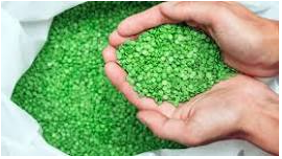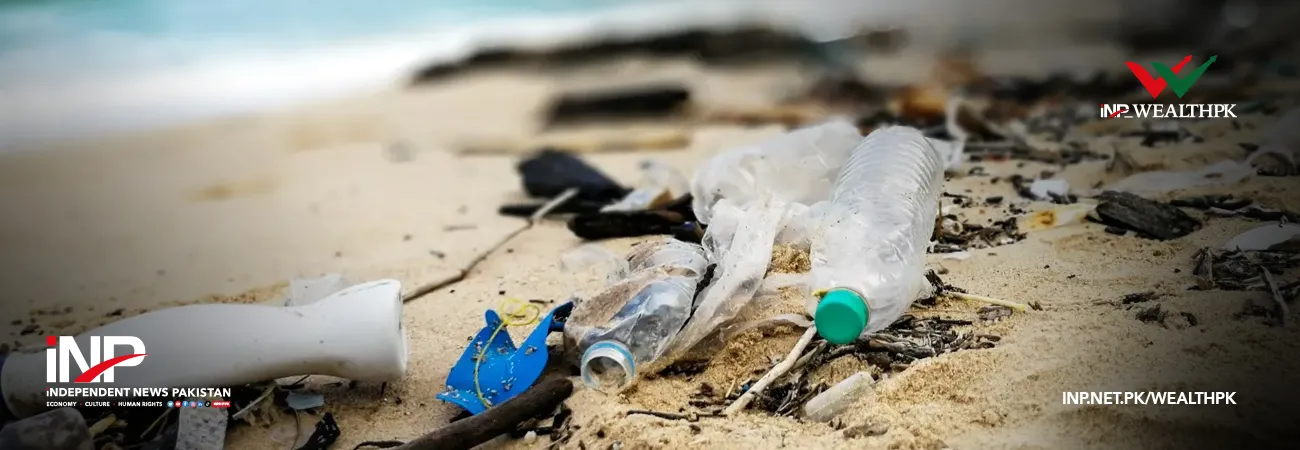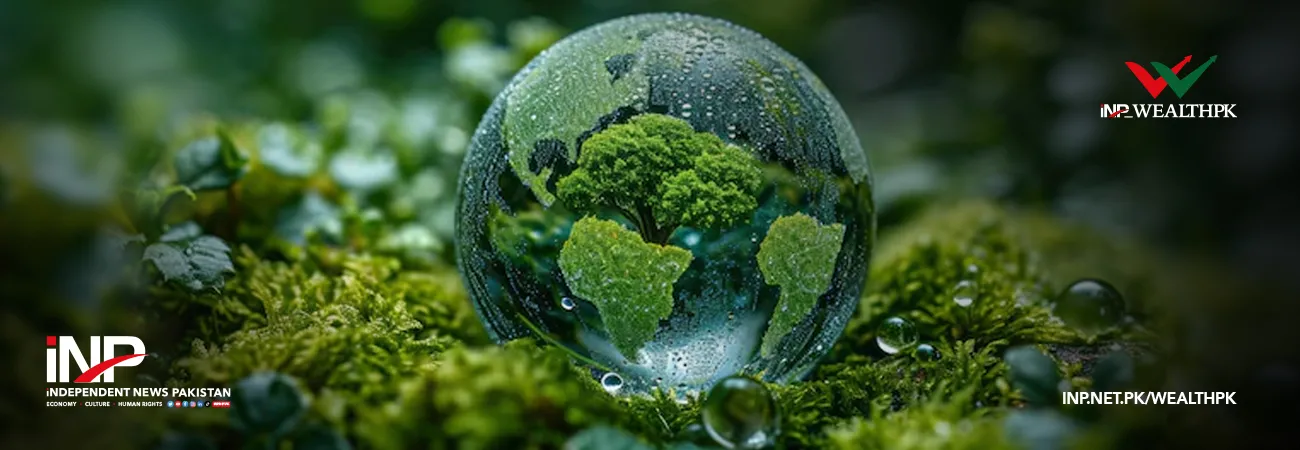INP-WealthPk
Faiza Tehseen
Pakistan’s shift to biodegradable plastics is essential to addressing its escalating waste issue and protecting the environment. It will lead to a self-sustaining green bio-plastic industry and economic uplift, said Muhammad Saleem, media spokesperson for the Ministry of Climate Change and Environmental Coordination (MoCC&EC), in an exclusive chat with WealthPK.

“Pakistan is grappling with severe pollution, especially with plastic waste in the urban areas, clogging drainage systems and polluting rivers. To mitigate these issues, bio-degradable plastics are the ultimate solution that do not cause long-term pollution. These plastics break down within a few months under the right environmental conditions,” he said. Saleem said the growing global demand for eco-friendly products was a lucrative opportunity for Pakistani investors and businesses.
To produce bio-plastics, the abundantly produced agricultural bio-products such as corn, sugar cane, and wheat could be converted into biodegradable plastics, reducing dependency on the petroleum-based plastic. “Pakistan is facing mounting challenges related to plastic waste, pollution, and environmental degradation. Widespread adoption can begin to alleviate the pollution burden and protect our natural resources.
However, with emphasis on sustainable innovation, bio-based plastics, derived from renewable resources, can make a great difference.” He said the government needed to make policies to support bio-based plastic production. It may include research and development subsidies, the establishment of eco-friendly infrastructure, and tax incentives for green manufacturing. The global trend toward sustainability and increasing demand for eco-friendly products create a favorable market for Pakistan.
By investing in the right technology and infrastructure, bio-based plastics will not only contribute to environmental preservation but also position the country as a global supplier of sustainable alternatives, added Muhammad Saleem. Talking to WealthPK about the importance of producing biodegradable plastic, Dr. Riffat Tahira, Principal Scientist at the National Agricultural Research Centre (NARC), said, “These plastics can be produced by using the agricultural waste or by-products including bagasse, corn cobs, rice bran, wheat straw, and fruit and vegetable peels.
These materials can be converted into biodegradable polymers through processes like fermentation or chemical modification, resulting in bioplastics that can decompose naturally.” She said microbial CO₂ fixation could produce polymers that could also be used to create biodegradable plastics – PHAs (polyhydroxyalkanoates) – produced naturally by microorganisms, including bacteria, as a storage form of carbon and energy. She said, “During the growth phase, bacteria synthesize PHA through fermentation, using various carbon sources.
The PHAs possess properties similar to the conventional plastics, making them suitable for a wide range of domestic and industrial applications, including packaging, textile, and biomedical devices.” The PHAs degrade naturally in various environments, reducing plastic pollution and waste management issues. The increasing mass of plastic waste needs to be decreased through substitutes and PHAs are a strong contender due to their biodegradability and biocompatibility. She said, “Without any environmental effects, the PHAs function like plastic and are incredible in composability, also.
So, they are gaining popularity as a sustainable alternative to conventional, non-degradable plastics. The cost of microbial plastic production can be cut by using lignocellulosic biomass, industrial effluents, and agricultural waste or by-products.” Talking with WealthPK, Muhammad Akbar, an environmentalist from Gilgit-Baltistan (GB), said, “Potentially, bioplastics reduce carbon dioxide emissions by at least 30% and can lower the carbon footprint by around 42%.
As compared to the petroleum-based plastics, about 65% less energy is used in producing biodegradable plastics.” For environmental protection, the production of bio-based plastics is a more sustainable alternative to traditional plastics. It also has the potential for circular economy, and is also helpful in reducing reliance on fossil fuels and lowering the greenhouse gas and carbon footprint, added Muhammad Akbar.
Credit: INP-WealthPk






